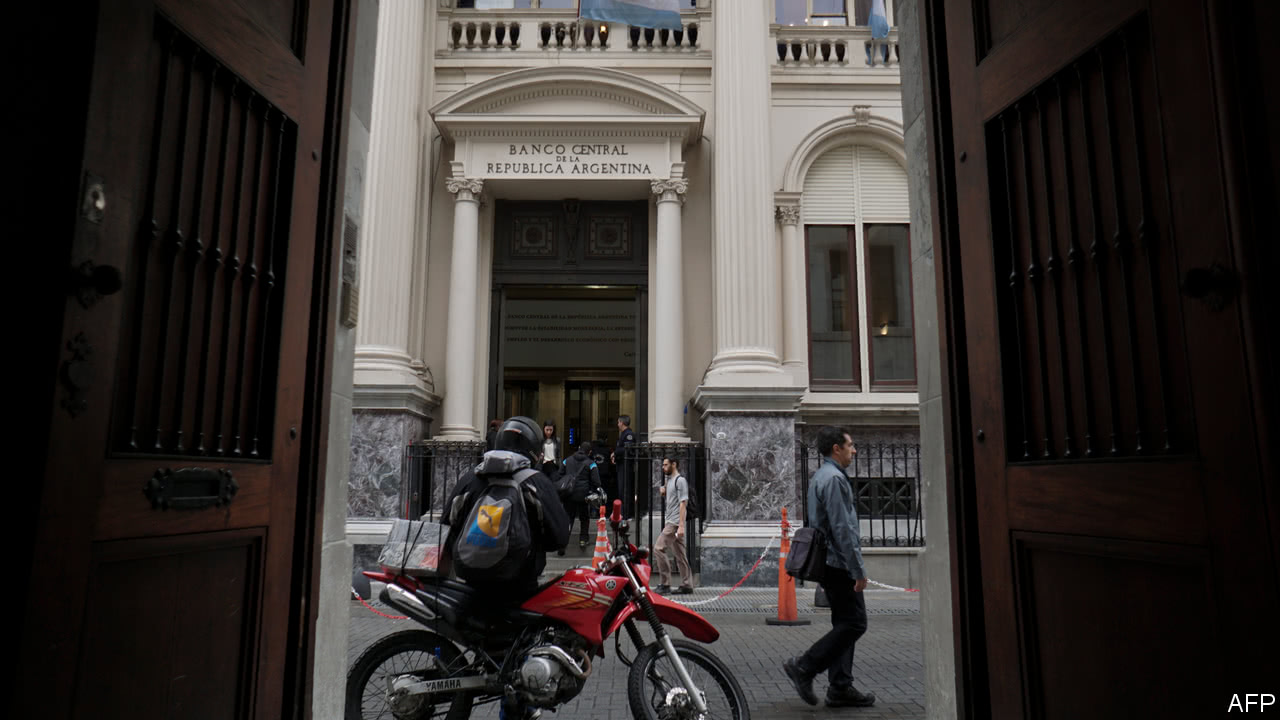
THE message to markets could not have been clearer. On the morning of May 4th, following a run on the peso, Argentina’s central bank raised interest rates by 6.75 percentage points, its third hike in a week. The interest rate now stands at 40%, up from 27.25% on April 27th.
Across town Nicolás Dujovne, the treasury minister, told reporters that Argentina’s budget deficit, which was 3.9% in 2017, would be brought down to 2.7% this year, rather than the previously stated target of 3.2%. After the announcements the peso strengthened by nearly 5% against the dollar.
-
Trade talks expose a chasm between China and America
-
A huge interest rate hike has arrested a run on the Argentine peso
-
America’s Treasury ramps up borrowing to finance the Republican tax cuts
-
A healthy re-examination of free trade’s benefits and shocks
-
Iowa passes one of the harshest abortion bills in America
-
Council elections in England reveal political stasis
The combined measures slammed the brakes on what was looking like the start of an escalating crisis. Argentina’s peso had fallen by a fifth against the dollar since the beginning of the year, making it the worst-performing emerging-market currency. But the measures also harm the prospects of growth—and of Mauricio Macri, the president.
The problems began in January, following the central bank’s decision on December 28th to loosen its inflation target for 2018 from 12% to 15%. The decision was taken at the behest of the government, which was concerned about the impact of high interest rates on economic growth. The bank then eased rates by 0.75 percentage points, causing expectations of inflation to rise. Investors began to question the bank’s independence, and its commitment to reducing inflation.
Their jitters intensified after 10-year US treasury yields rose above 3 per cent in late April. That prompted investors to withdraw money from emerging markets and other risky assets. Argentina was first in line. On top of inflation that has run at 25% over the past 12 months, investors were spooked by the country’s large foreign debt pile and a current-account deficit of 5% of GDP.
Political decisions within Argentina exacerbated the external shock. Foreign investors became keener still to sell Argentine bonds and buy dollars when the government brought in a new capital-gains tax in order to appease its opponents. Political tensions within Cambiemos, the governing coalition, over how quickly to reduce subsidies for energy and utility bills cast doubt on the government’s commitment to cut spending.
In the final week of April, faced with a rapidly weakening peso, and fearing the impact of the currency’s slide on inflation, the central bank sold $4.3bn of its dollar reserves over five days. Between April 27th and May 3rd it raised interest rates by six percentage points. But the moves had little effect. After the peso lost 7.8% of its value during trading on May 3rd, the bank decided to act more forcefully, hiking the interest rate up to 40%.
The measure appears to have averted a full-blown crisis, at least for now. “It’s a step in the right direction,” says Alberto Ramos of Goldman Sachs, an investment bank. Panic appears to have receded. But Argentina may not be out of the woods. The central bank will be braced for further downward pressure on the peso, particularly if inflation figures continue to disappoint.
That means interest rates will probably remain high for some time. “If the central bank cuts rates too early we risk seeing a rerun of the crisis we’ve just seen,” says Edward Glossop of Capital Economics, a consultancy. On May 4th Fitch, a ratings agency, downgraded the outlook for Argentina from positive to stable, citing high inflation and economic volatility.
With presidential elections not due until October 2019, Mr Macri has time to steady the ship. He had hoped the country’s economic situation would begin to pick up during the second half of the year, when inflation was expected to fall and the real value of wages was expected to rise. But a severe drought meant that prospect was already receding. Higher interest rates, and the extra fiscal tightening announced on May 4th, dim it even more, says Mr Glossop.
Mr Macri, and the central bank, are desperately trying to ensure that Argentina avoids repeating the experience of Brazil, which only got a grip on inflation after the longest recession in its history. “Will it take a big hit to the economy to finally break the back of inflation?” asks Mr Ramos. Argentines must hope not.
Source: economist
A huge interest rate hike has arrested a run on the Argentine peso